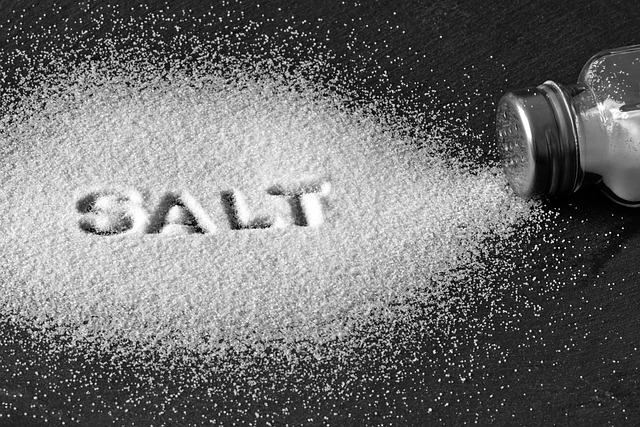
Mineral Supplementation
Understanding Mineral Supplementation
Mineral supplementation has become a topic of considerable interest in the realm of health and nutrition. As individuals strive to maintain optimal health, the role of minerals in the body cannot be overstated. Minerals are essential nutrients that play a critical role in various bodily functions, including bone health, fluid balance, and nerve transmission. However, the decision to incorporate mineral supplements into one’s diet should be approached with careful consideration.
The Importance of Minerals
Minerals are inorganic substances that the body requires in small amounts for a range of physiological functions. They are classified into two categories: macrominerals, which include calcium, magnesium, and potassium, and trace minerals, such as iron, zinc, and selenium. Each mineral serves unique functions:
- Calcium: Vital for bone health and muscle function.
- Iron: Essential for the formation of hemoglobin, which carries oxygen in the blood.
- Magnesium: Involved in over 300 biochemical reactions in the body, including energy production.
- Zinc: Important for immune function and wound healing.
Despite the importance of these minerals, many individuals may not receive adequate amounts through their diet alone. This can be particularly true for specific populations, including pregnant or breastfeeding women, the elderly, and individuals with restrictive diets.
Who May Benefit from Mineral Supplements?
While a balanced diet rich in fruits, vegetables, whole grains, and lean proteins is the best source of minerals, certain groups may find supplementation beneficial:
- Pregnant and Breastfeeding Women: Increased nutritional needs during pregnancy and lactation can make it challenging to meet mineral requirements through diet alone.
- The Elderly: Aging can affect nutrient absorption and dietary intake, leading to potential deficiencies.
- Individuals with Alcohol Dependency: Excessive alcohol consumption can interfere with the absorption of various nutrients, necessitating supplementation.
- People with Restricted Diets: Those following vegan or vegetarian diets may require additional iron, calcium, and zinc.
Potential Risks of Mineral Supplementation
While mineral supplements can provide benefits, it is crucial to approach their use with caution. Taking high doses of certain minerals can lead to toxicity and adverse health effects. For example, excessive iron intake can cause gastrointestinal distress and more severe health issues. Therefore, it is advisable to consult a healthcare professional before starting any supplementation regimen.
Food vs. Supplements
It is essential to recognize that while supplements can help fill nutritional gaps, they should not replace a healthy diet. Whole foods provide a complex array of vitamins, minerals, and phytochemicals that work synergistically to promote health. Research indicates that the body may not absorb isolated nutrients from supplements as effectively as those from food sources. For instance, the synthetic form of folate found in supplements is better absorbed than folate from food, but this is an exception rather than the rule.
Guidelines for Safe Supplementation
For those considering mineral supplementation, the following guidelines may help ensure safe and effective use:
- Consult a Healthcare Provider: Before starting any supplement, it is essential to discuss your individual health needs with a qualified professional.
- Choose Quality Products: Select supplements from reputable brands that adhere to safety and quality standards.
- Follow Recommended Dosages: Adhere to the recommended daily allowances (RDAs) for minerals to avoid toxicity.
- Monitor Your Health: Regular check-ups can help assess whether supplementation is necessary and effective.
Conclusion
Mineral supplementation can play a vital role in supporting health, particularly for individuals with specific dietary needs or restrictions. However, it is essential to approach supplementation thoughtfully and in conjunction with a balanced diet. By understanding the importance of minerals, recognizing who may benefit from supplements, and adhering to safety guidelines, individuals can make informed decisions that contribute to their overall well-being.

















 What Are Singing Bowls?
What Are Singing Bowls? 
 Health
Health  Fitness
Fitness  Lifestyle
Lifestyle  Tech
Tech  Travel
Travel  Food
Food  Education
Education  Parenting
Parenting  Career & Work
Career & Work  Hobbies
Hobbies  Wellness
Wellness  Beauty
Beauty  Cars
Cars  Art
Art  Science
Science  Culture
Culture  Books
Books  Music
Music  Movies
Movies  Gaming
Gaming  Sports
Sports  Nature
Nature  Home & Garden
Home & Garden  Business & Finance
Business & Finance  Relationships
Relationships  Pets
Pets  Shopping
Shopping  Mindset & Inspiration
Mindset & Inspiration  Environment
Environment  Gadgets
Gadgets  Politics
Politics 